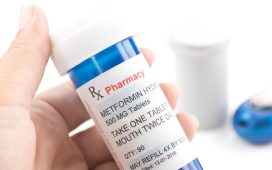Men with negative mpMRI results avoiding biopsy did not have increased risk for clinically significant prostate cancer
By Elana Gotkine HealthDay Reporter
MONDAY, Dec. 30, 2024 (HealthDay News) — Men with negative multiparametric magnetic resonance imaging (mpMRI) results avoiding biopsy do not have an increased risk for clinically significant prostate cancer (PCa), according to a study published online Dec. 12 in JAMA Oncology.
Charlie A. Hamm, M.D., Ph.D., from Charité-Universitätsmedizin Berlin, and colleagues examined the feasibility and safety of a community-based MRI diagnostic strategy in men aged 18 to 75 years with suspected PCa. Participants underwent 3-Tesla mpMRI; those with findings suspected to be PCa were recommended for targeted prostate biopsy (PB). Men with negative mpMRI results or positive mpMRI results and benign findings on PB were monitored systematically for three years.
Overall, 593 men underwent mpMRI and 48 percent had negative MRI results; 44 and 41 percent avoided PB initially and over three years, respectively. The researchers found that clinically significant PCa was detected in 27 and 29 percent of men after immediate PB and after three years, respectively. Seven men with negative MRI results had PCa diagnosed by immediate PB and 279 entered the monitoring phase. A total of 233 completed three-year monitoring, with seven PCa diagnoses. Nineteen percent of the 307 men with positive MRI results showed no PCa after immediate PB; of these, 71 and 7 percent completed monitoring and were diagnosed with clinically significant PCa, respectively.
“By providing programmatic three-year monitoring data for both patients with negative and positive MRI results, findings from this study address the gap of knowledge highlighted in current guidelines on the use of MRI in the diagnosis and management of PCa,” the authors write.
Several authors disclosed ties to pharmaceutical and medical technology companies, including Bayer Pharma AG and Siemens Healthineers, both of which contributed funding for the study.
Copyright © 2025 HealthDay. All rights reserved.








